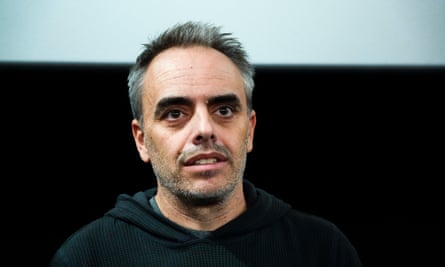
Novelist, short story writer and film-maker Virginia Gilbert has written and directed this carefully constructed, robustly performed drama, an intimate feature which in some ways resembles a stage play or even a radio play, yet none the worse for that; it’s the kind of grown up, approachable movie designed to be talked about afterwards over dinner. Jared Harris and Juliet Stevenson play John and Mary, a married couple – he’s an electrician, she’s a primary schoolteacher – whose daughter Clare vanished 10 years previously at the age of 14. For a decade, they have lived in a twilight of suppressed despair and clenched longing, a hibernation of the soul.
On the 10th anniversary of her disappearance, the police talk John and Mary into appearing at another agonised, televised appeal for information – and then a miracle. A tremulous, frightened young woman (played by Erin Doherty) appears on their doorstep, apparently the right age and looking very much like the computer-generated images of what Clare would look like now. She says that she’s Clare and appears to know things that only Clare would know. Or does she? Mary passionately wants to believe and ignores any hint to the contrary; John goes in the opposite emotional direction and is heavy-handed in his sceptical questioning, continuing to haunt a community centre for homeless teens, asking if anyone has seen his daughter.
Is this “Clare” simply a troubled, delusional chancer who wants to be the centre of attention? The only way to know for sure is to demand a DNA test, and yet this woman is an adult who cannot be compelled to do that or anything else, and if John pushes too hard for the test, she might just take fright or take offence and disappear again – a reaction which might be perfectly consistent with her being the real thing.
All three performances have sincerity and sympathy: Stevenson’s is interestingly comparable to her appearance in Anthony Minghella’s Truly Madly Deeply in 1990 – and you might compare this mystery to similarly themed films like Daniel Vigne’s The Return of Martin Guerre or Clint Eastwood’s Changeling.
Gilbert interestingly suggests not merely that Clare’s possible imposture is something in which John and Mary might decide to believe for therapeutic reasons, but that for a young woman quite genuinely in this situation, her troubled feelings of guilt and alienation might well make her feel like a fake anyway, like someone who has not had the “real” Clare’s happy home life. Though a little mannered, the film has intelligence and force.
Source: theguardian.com





















